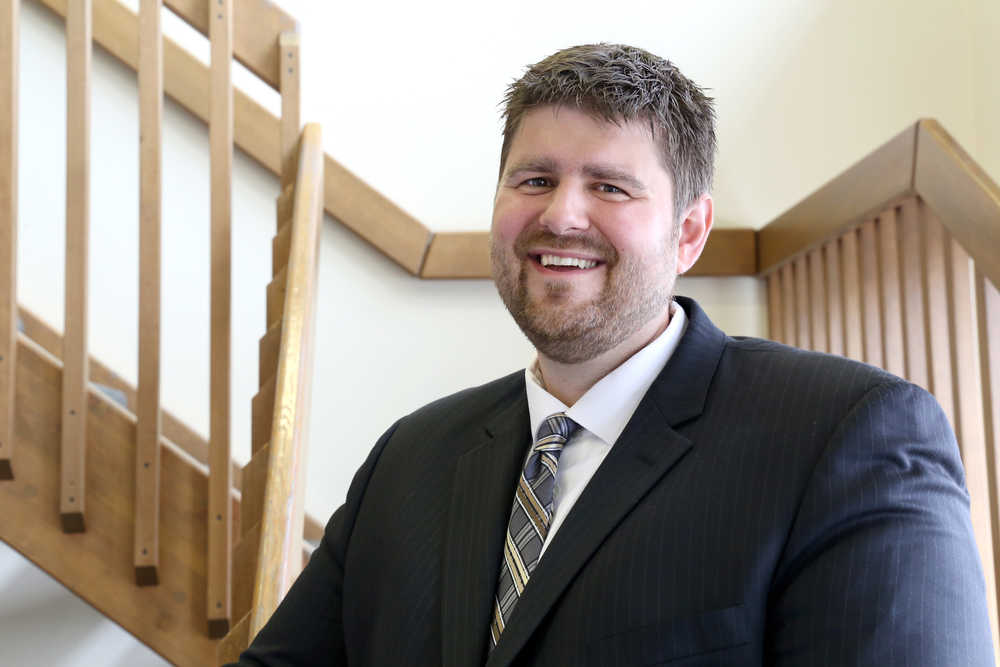Soldotna’s Keith Baxter is among the many throwing their hats into the upcoming race for the Alaska House of Representatives District 30 seat.
A Soldotna native and member of the Soldotna City Council, Baxter also works for the Kenai Peninsula Tourism Marketing Council. He filed for candidacy in January.
“I could think of no better way to influence (a) revenue plan than to be a representative in the Legislature,” he said, adding that he has become increasingly disappointed that the Legislature did not get around to addressing the revenue plan this last session.
Dealing with the $3.2 billion deficit would be Baxter’s main goal in Juneau, he said. He thinks he would make a good representative because he would communicate effectively with constituents and balance the needs of the state with the needs of District 30, he said.
“I was born just around the corner, and some people might think it’s unusual, but I’ve never been gone from Alaska for more than 30 consecutive days at any point in my life,” he said. “So I’ve been getting to know members of this community my whole life, and … I know what it’s like to grow up as a kid here, I know what it’s like to be in the public schools here, I know what it’s like to be a parent in the public schools here, and not all of our candidates can say that.”
Accessibility is an issue Baxter said he heard a lot about when it comes to elected officials, and he said he would seek to get as much face-to-face time with constituents as possible.
“I suppose if I did have a pet issue, it would be a balanced budget, which is my main focus,” he said.
When it comes to the budget, Baxter said he was impressed with Gov. Bill Walker’s willingness to have a frank conversation about the state’s fiscal situation, and that he would have been more in favor of Senate Bill 128 — the governor’s bill restructuring the way the Legislature can spend the earnings of the Permanent Fund — if it had come with something like a sunset clause.
“In the near term, I think some use of permanent fund earnings to balance the state budget and pay for state services is unavoidable,” Baxter said. “… I’m concerned about the permanency of something done in haste or out of immediate need. .. In the future, if our circumstances change, I don’t want it to be so difficult to back out of this plan. The solution we need today might not be appropriate in three, six, five years, 10 years.”
Baxter said he sees pros and cons to both a sales and income tax, but that he is not ready to write either of them off or commit to any set plan to balance the budget. A sales tax could allow the state to better capitalize on the visitor industry, he said, but would disproportionately affect low-income Alaskans or those in very rural areas.
An income tax would draw more revenue from out-of-state workers, which Baxter said are not limited to the North Slope, but said he doesn’t “like the idea of disincentivizing economic activity” or “the idea of punishing people for earning more and being more productive in the economy.”
Baxter spoke of a culture shift that he thinks needs to happen and is coming in Juneau. The fact that it’s an election year should contribute to this, he said, and his hope is that lawmakers will go into the new session with an expectations that compromises will be made.
“You don’t balance a $3.2 billion deficit without considering all your options,” he said. “And one of the examples I like to use with people … the reality is we’re going to pay more and get less. We’re going to pay more and get less. People need to be ready for that.”
Whatever combination is required to remedy the state’s budget, Baxter said any actions chosen will “have an aftertaste.” Continued cuts go without saying, he said, and the idea of a spending cap has been hashed out before.
“The difficulty with a spending cap is that the 30th Legislature cannot dictate to the 31st Legislature what they can spend or not. They just can’t,” Baxter said. “You could have an allocation guideline, you could have some advice or whatnot, but already we need to cut. That goes without saying.”
Baxter said he would look forward to communicating effectively with other legislators and thinks he would be a good choice for a mediating role between those on opposing sides of an issue.
“If they don’t think I’m the best qualified (candidate,) I don’t think that they should vote for me,” Baxter said of the primary. “It’s important that our district have confidence in who we send to Juneau, and I believe that 100 percent, that if somebody feels that I’m the best choice, that’s the only reason they should vote for me.”
Reach Megan Pacer at megan.pacer@peninsulaclarion.com.

